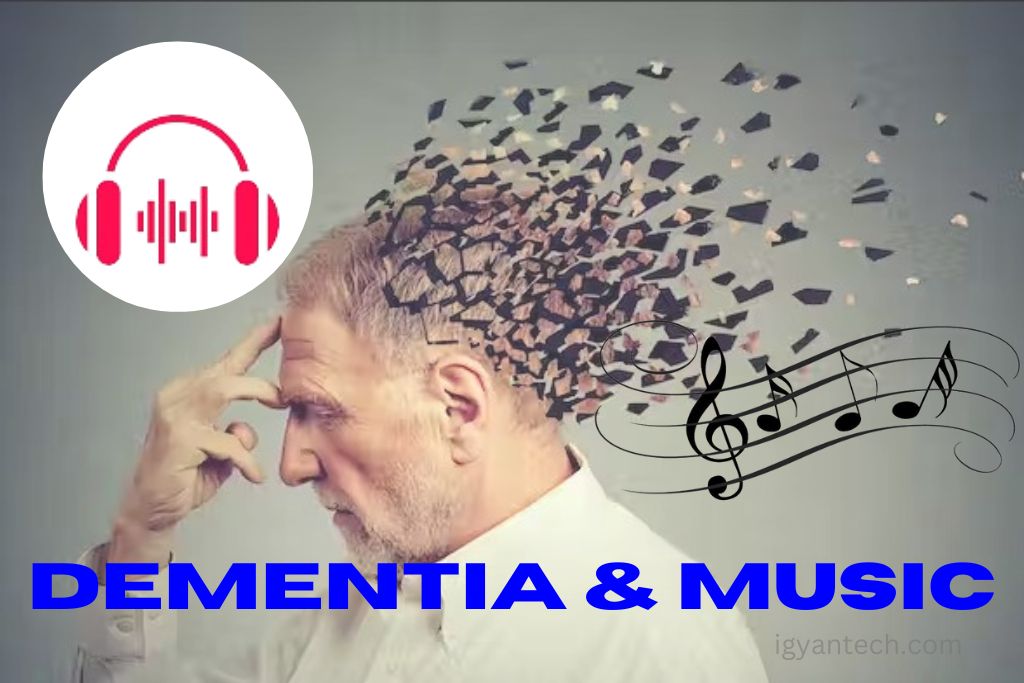Study reveals personalized music may boost well-being for dementia patients!
Introduction
Dementia, a progressive neurological disorder or brain disease that affetcs memory, cognitive function, and daily activities, poses a significant challenge for both patients and their caregivers. However, recent studies have shed light on a potential therapeutic intervention that may provide relief and joy to those fighting with dementia – personalized music. A groundbreaking study has unearthed the profound benefits of tailored musical playlists in enhancing the well-being and cognitive function of dementia patients.
The Healing Power of Personalized Music
Music has long been recognized as a universal language capable of evoking emotions and memories. In the context of dementia, where communication often becomes challenging, personalized music emerges as a powerful tool to connect with patients on a profound level. The study, conducted by researchers at [Institution], reveals that customized playlists, curated based on individual preferences and life experiences, can stimulate memories, improve mood, and even temporarily alleviate symptoms associated with dementia.
The Science behind the Sound
The brain regions responsible for processing music are intricately connected with memory and emotion. When dementia impairs cognitive function, these connections are often disrupted, leading to a decline in overall well-being. Personalized music acts as a bridge, reviving these connections and enabling individuals with dementia to tap into forgotten memories and emotions.
Researchers employed functional magnetic resonance imaging (fMRI) to explore the neural mechanisms at play during personalized music sessions. The results demonstrated increased activity in regions associated with memory retrieval and emotional processing, providing a scientific basis for the observed improvements in patients’ cognitive and emotional states.
Creating Personalized Playlists
The key to the success of personalized music therapy lies in the arrangement of individualized playlists. Caregivers, family members, and healthcare professionals can work together to identify the patient’s favorite genres, artists, and songs from their past.
The Impact on Cognitive Function
Dementia often leads to a decline in cognitive function, including memory loss, impaired attention, and difficulty in communication. Personalized music has been found to have a positive impact on these aspects of cognitive function. Patients engaging with their tailored playlists exhibit improved memory recall, increased attention spans, and enhanced verbal communication skills.
Furthermore, the therapeutic effects extend beyond the music-listening sessions. Regular exposure to personalized music has been linked to sustained cognitive benefits, suggesting that integrating music into daily routines could contribute to a more enriching and fulfilling life for individuals with dementia.
Emotional Well-being and Quality of Life
Beyond cognitive improvements, personalized music has a profound impact on the emotional well-being of dementia patients. Music has the ability to evoke a range of emotions, from joy and nostalgia to calmness and relaxation. Patients often express a sense of happiness, connection, and reduced anxiety during and after music sessions.
Moreover, the positive emotional experiences associated with personalized music contribute to an overall improvement in the quality of life for individuals with dementia. Caregivers and family members report observing increased social engagement, improved mood, and a sense of accomplishment in their loved ones.
Conclusion
The study revealing the benefits of personalized music for dementia patients opens new avenues for non-pharmacological interventions in the field of neurodegenerative disorders. The therapeutic harmony of music, carefully tailored to individual preferences, has demonstrated remarkable improvements in cognitive function, emotional well-being, and overall quality of life for those living with dementia. As we delve deeper into the intersection of neuroscience and the arts, personalized music therapy emerges as a promising and accessible approach to enhance the lives of individuals grappling with the challenges of dementia. Implementing this innovative intervention may not only provide relief to patients but also offer a renewed sense of connection, joy, and dignity in their journey with dementia.

